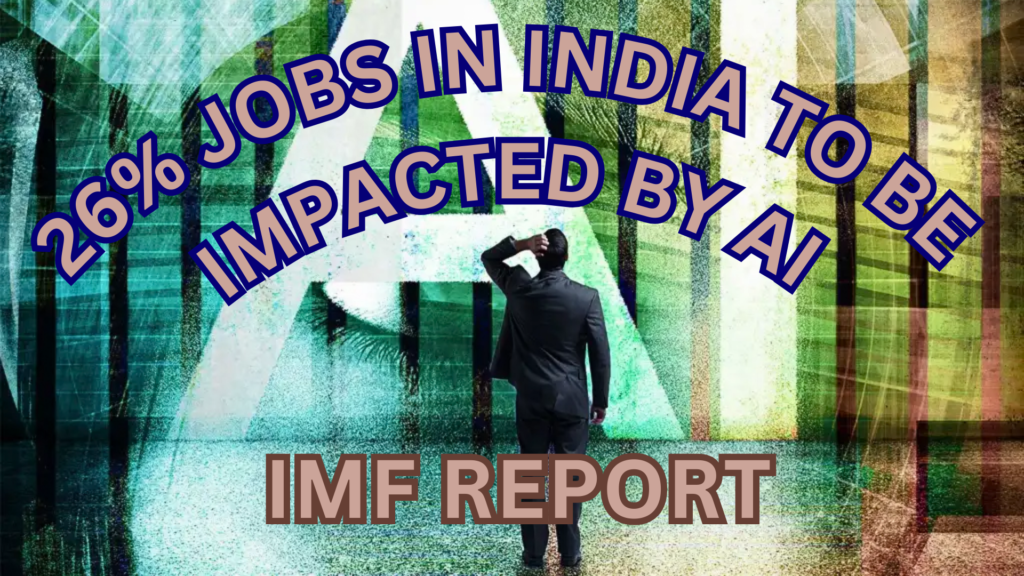AI could impact a quarter of jobs in India, says IMF report

Twenty-six per cent jobs in India have been categorised as “high-exposure employment” with respect to being impacted by artificial intelligence (AI) in the foreseeable future, as per an analysis published recently by the International Monetary Fund (IMF), citing data from the country’s Periodic Labour Force Survey (PLFS).
This is high, but in developed economies, according to the report—titled ‘Gen-AI: Artificial Intelligence and the Future of Work’, and released in January—the number is as high as 60% and 40 per cent globally. India has been categorised as being among the “emerging market economies”.
The comparative lower impact is the result of most of the country’s jobs falling in the low-exposure category, as per PLFS data—”craftspeople, skilled agricultural workers, and low-skilled, or ‘elementary’ workers”.
The highest risk will be faced by professionals, managers, clerical support workers, technicians and those working in service and sales jobs.
The predominance of “cognitive-intense” jobs in developed economies make them much more impactable to disruption by AI, though, the report says, the impact includes “benefits [implying efficiency] and pitfalls [implying loss of jobs]”.
The report further says that the “correlation between earnings and potential complementarity [to disruption by AI] is consistent with the findings on education level and is even more pronounced for emerging market economies [like India]”, suggesting “that AI’s gains will likely disproportionately accrue to higher-income earners, especially in countries such as India … where complementarity steadily rises at the top of the [income] distribution”.
Despite these dire predictions, the report concludes that “while long-term productivity gains from AI are likely, during the transition, job displacement and changes in income distribution could have substantial political economy implications”.
Therefore, countries must adopt policies that, on the one hand, “promote the equitable and ethical integration of AI and train the next generation of workers in these new technologies”, and at the same time, “protect and help retrain workers currently at risk from disruptions”.







